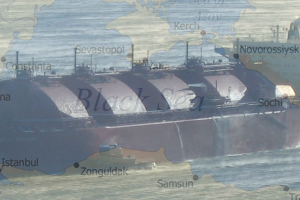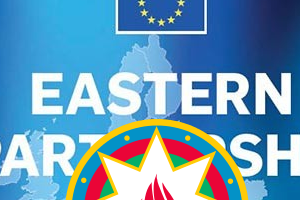AGRI's progress advances Brussels' and Baku's energy agendas
By Micha’el Tanchum (08/07/2015 issue of the CACI Analyst)
On June 24, 2015, Azerbaijan, Georgia and Romania signed a declaration committing to advance the Azerbaijan-Georgia-Romania Interconnector (AGRI) project that will transport Azerbaijani LNG across the Black Sea to Romania for re-gasification and sale in European markets. The project creates a theoretical possibility for Turkmen LNG to reach Europe through a modified use of the system. Of great geopolitical consequence, the option requires a commensurate amount of political will to implement. Independent of potential Turkmen gas exports, the furtherance of the AGRI project constitutes an important advance for Azerbaijan’s strategic policy to develop European Union stakeholders in its political sovereignty.

Azerbaijan and the EU
By Natalia Konarzewska (06/24/2015 issue of the CACI Analyst)
Azerbaijan’s president Ilham Aliyev made a last-minute decision not to attend the European Union’s May 21–22 Eastern Partnership (EaP) summit in Riga, citing the need to focus on the upcoming European Olympic Games, which were about to start in Baku. However, high-ranking officials quoted in the media asserted that president Aliyev did not attend the summit due to Western criticism towards Azerbaijan. Baku also expressed dissatisfaction with the summit’s results as Azerbaijan hoped to receive more vocal Western support for the resolution of the Nagorno-Karabakh conflict. Instead, attention was focused on human rights violations in Azerbaijan. Azerbaijan’s relationship with the EU is becoming increasingly strained and displays growing disappointment from both sides.

CACI Analyst, June 24, 2015
Contents
Analytical Articles
EXISTING PARADIGMS FOR RESISTANCE IN THE NORTH CAUCASUS CHALLENGED BY KADYROV, ISIS, by Kevin Daniel Leahy
FOOTBALL NATIONALISM AMONG IRAN’S AZERIS, by Emil Souleimanov
KAZAKHSTAN COMPLETES WTO ACCESSION NEGOTIATIONS, by Nurzhan Zhambekov
AZERBAIJAN AND THE EU, by Natalia Konarzewska
Field Reports
RUSSIA ENHANCES ITS SOFT POWER IN GEORGIA THROUGH LOCAL NGOs, by Eka Janashia
BISHKEK AND TASHKENT FACE UNEASY RELATIONS, by Arslan Sabyrbekov
TAJIKISTAN’S ISLAMIC RESISTANCE PARTY STRUGGLES TO SURVIVE, by Oleg Salimov
ARMENIA AND IRAN HOLD POLITICAL CONSULTATIONS, by Erik Davtyan
CACI Analyst, June 10, 2015
Contents
Analytical Articles
HANGING IN THE TRADE BALANCE: IS FREE TRADE A CURSE FOR KAZAKHSTAN?, by Sergei Gretsky
SHIFTING RUSSIAN POLICIES TOWARDS ALLIED SEPARATIST REGIONS, by Michael Hikari Cecire
AFGHANISTAN-PAKISTAN INTELLIGENCE COOPERATION AND THE PROSPECT OF PEACE, by Sudha Ramachandran
TURKEY-ARMENIA RELATIONS AFTER TURKEY'S ELECTIONS, by Armen Grigoryan
Field Reports
GEORGIA'S POLITICAL LANDSCAPE TRANSFORMS AS SENIOR UNM MEMBERS DEFECT, by Eka Janashia
KYRGYZ PARLIAMENT PASSES "FOREIGN AGENTS" LAW IN FIRST READING, by Arslan Sabyrbekov
AZERBAIJANI DIPLOMAT UNDER ATTACK AFTER COMMENTING BAKU FIRE, by Mina Muradova
THE RIGA SUMMIT AND NEW PROSPECTS FOR EU-ARMENIA RELATIONS, by Erik Davtyan
CACI Analyst, May 13, 2015
Contents
Analytical Articles
PAKISTAN AND AFGHANISTAN-INDIA COOPERATION, by Sudha Ramachandran
TURKEY, ARMENIA, AND THE POLITICS OF GENOCIDE RECOGNITION, by Emil Souleimanov
KAZAKHSTAN TO REFORM ITS CULTURAL SECTOR, by Rafis Abazov and Andrey Khazbulatov
WILL TURKISH STREAM COMPETE WITH THE SOUTHERN GAS CORRIDOR?, by Natalia Konarzewska
Field Reports
REPUBLICANS STRENGTHEN POSITION IN RESHUFFLED GEORGIAN GOVERNMENT, by Eka Janashia
KYRGYZSTAN TO HOLD ANOTHER CONSTITUTIONAL REFERENDUM, by Arslan Sabyrbekov
PRESIDENT SARGSYAN AND COUNTERPARTS COMMEMORATE ARMENIAN GENOCIDE, by Erik Davtyan
AZERBAIJAN CRACKS DOWN ON ACTIVISTS AHEAD OF EUROPEAN GAMES, by Mina Muradova




